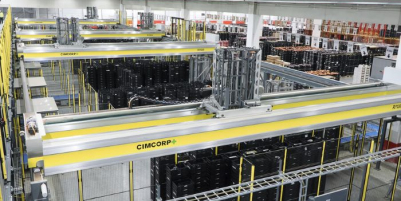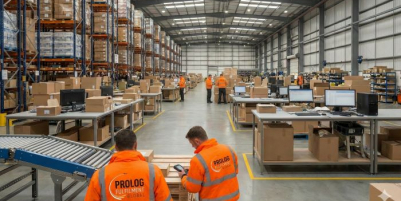-
GOPLASTICPALLETS.COM AND GOMI TEAM UP TO CREATEINNOVATIVE TECH FROM END-OF-LIFE PALLETS - 11 hours ago
-
Nulogy Introduces the Manufacturing Operating System - February 27, 2026
-
Bliss Direct scales to 300 daily orders and saves 25 hours per week with Forterro’s Orderwise ERP - February 25, 2026
-
Wootzwork raises $6.6M to bring predictability to offshore manufacturing - February 25, 2026
-
Rite-Hite unveils new range of hydraulic kits to upgrade and extend dock leveller performance - February 19, 2026
-
REWE and Cimcorp automate fresh supply chain for Berlin supermarkets and stores - February 19, 2026
-
Q1 – A recovery period or time to fix, switch and scale? - February 19, 2026
-
NULOGY’S SHOP FLOOR SOFTWARE TO POWER COMPLETE CO-PACKING’SOPERATIONS - February 13, 2026
-
Why lead generation depends upon good content - February 13, 2026
-
Wallapop and Albatross Sign Strategic Partnership to Bring Real-Time AI Discovery to the Future of Consumer-to-Consumer Commerce - February 12, 2026
Driven by the stay-at-home economy, e-commerce set records during the 2020 holiday season. A new study by the MIT Real Estate Innovation Lab: Logistics Real Estate and E-Commerce Lower the Carbon Footprint of Retail reveals the tangible environmental benefits of online shopping.
Aside from the immediate positive impact on emissions, the outlook of an increase of 80% in package delivery over the next decade combined with on-going innovations such as more effective planning, package innovations, smart buildings, electrification of vehicles and artificial intelligence (AI) can foster even more sustainable operations.
Dirk Sosef, Vice President, Research and Strategy, Prologis: “The annual e-commerce growth rate across Europe follows similar upward trends as seen in the US. In Europe, in-store shopping has a slightly smaller impact on emissions, due to a higher density of the brick and mortar network and the availability of the public transport facilities. Still, we will continue to see the strong positive effects of the innovations in e-commerce on emissions.”
Pre-holiday period European increases in annual e-commerce sales are reported to be 34% from November 2019 to November 2020, with variations for each country (source Eurostat).
Please see the full research here























